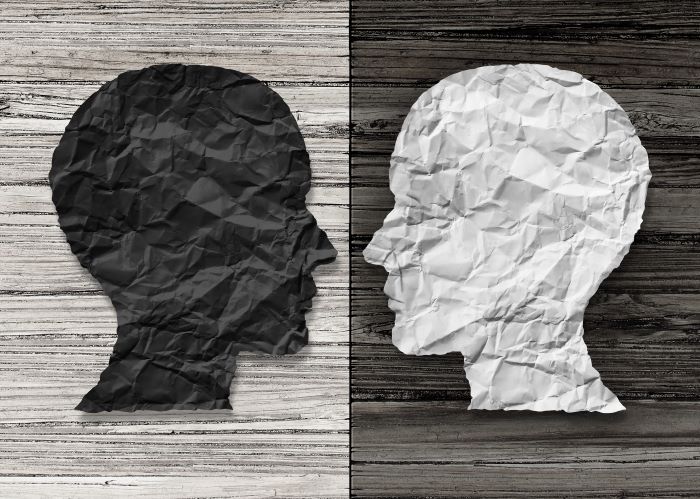Top Bipolar Tests For Accurate Diagnosis
Related Topics (Sponsored Ads):
The path to getting an accurate bipolar diagnosis can be lengthy, confusing and frustrating for many. This comprehensive guide examines the various self-tests, warning signs, clinical evaluations and medical specialists available in the US healthcare system to aid those embarking on the diagnosis process.
The path to getting an accurate bipolar diagnosis can be lengthy, confusing and frustrating for many. This comprehensive guide examines the various self-tests, warning signs, clinical evaluations and medical specialists available in the US healthcare system to aid those embarking on the diagnosis process.

Self-Assessment
Proactively monitoring one’s mental health through self-assessment tools is the first step for anyone noticing potential symptoms of bipolar disorder. Convenient online screening tests that may indicate bipolarity include:
Mood Disorder Questionnaire (MDQ) – Screens for past manic or hypomanic symptoms.
Bipolar Spectrum Diagnostic Scale (BSDS) – Measures severity of mania and depression.
Altman Self-Rating Mania Scale – Identifies manic symptoms.
Additionally, keeping a mood journal to track unusual changes in sleep patterns, activity levels or behaviors can uncover emerging bipolar signs. While not confirmatory, these initial self-checks help determine if clinical evaluation is warranted.
Spotting Early Warning Signs
In addition to self-screening, watching out for the following common early bipolar symptoms can enable timely intervention:
Frequent and intense mood swings
Impulsive behavior like overspending, unsafe sex or substance abuse
Decreased need for sleep without fatigue
Significantly increased energy, goal-directed activity and talkativeness
Difficulty concentrating with racing thoughts
Heightened risk-taking behaviors and poor self-control
Grandiose or unrealistic beliefs about self
Strong feelings of irritability or aggression
Going through depressive periods for weeks
Constant fidgeting or restlessness
Noticing the emergence of such symptoms enables prompt action to get on a treatment plan before bipolar disorder worsens.
The Pivotal Clinical Interview for Accurate Diagnosis
A detailed clinical interview by a certified mental health professional is the most definitive way to assess bipolar disorder. The key objectives of such an interview are to:
Thoroughly review the patient’s psychiatric and general health history.
Identify previous or current manic, depressive or mixed episodes through illustrative examples.
Cross-verify symptoms reported across different life realms like home, work and relationships.
Evaluate family history for bipolar disorder or related mental illness.
Distinguish between bipolar disorder and other diagnostically similar conditions like depression, ADHD or borderline personality disorder.
Make an official diagnosis per the DSM-5 diagnostic criteria based on symptoms analysis.
The success of this interview depends greatly on the patient’s willingness to transparently communicate their full experiences. The clinician also strives to build trust and empathy during the delicate information exchange.
A Deeper Dive into Cognition and Emotions
While the clinical interview assesses reported experiences, psychological testing using validated clinical tools provides an objective assessment of the patient’s cognitive and emotional state. Commonly used tests include:
Minnesota Multiphasic Personality Inventory-2 – Evaluates personality traits and mental health indicators.
Weschler Adult Intelligence Scale – Assesses verbal comprehension, working memory, processing speed and reasoning ability.
Rorschach Inkblot Test – Uncovers thought disorder patterns through interpretive analysis.
Neurocognitive assessments – Identify cognitive deficits related to bipolar disorder.
The deeper insights from structured testing shape individualized treatment plans targeting the specific problem areas.
Physical Examinations and Lab Tests
Since medical conditions like thyroid abnormalities or neurological disorders can masquerade as bipolar disorder, physical exams and lab tests are conducted to rule these out. These include:
Blood tests measuring thyroid, glucose, calcium and lipid levels as well as nutritional markers.
Urine drug screen to identify substance-induced psychiatric symptoms.
Neurological exam to assess nerve function and reflexes.
Brain scans like CT, MRI or fMRI to detect tumors or degenerative changes.
Electroencephalogram (EEG) to rule out seizure disorders.
Once any physical health issues are eliminated, a clear psychiatric bipolar diagnosis can be made. These tests also establish baselines to monitor physical health during treatment.
Accessing Specialized Bipolar Medical Care and Support
Those undergoing bipolar diagnosis and management have access to highly trained medical experts across the United States healthcare system including:
Psychiatrists – Assess symptoms and prescribe suitable medications.
Psychiatric Nurse Practitioners – Provide ongoing care including diagnosis, medication management, education and monitoring.
Clinical psychologists – Conduct extensive psychological evaluations and psychotherapy.
Licensed clinical social workers – Offer emotional support and strategies to cope with the disorder.
Support groups either locally or online also provide community, advice and hope from others living with bipolar disorder.
Committing to the Process for an Accurate Diagnosis
The complex journey to obtaining an accurate bipolar diagnosis can be frightening and frustrating. However, arming oneself with education about the available medical resources, leveraging tools for self-assessment, watching for early symptoms, communicating clearly with clinicians and sticking to the structured diagnostic process enables gaining clarity on this challenging yet treatable condition. While bipolar disorder cannot be cured, its cycles can be effectively managed through a combination of medication, therapy, lifestyle changes and social support. The varied resources of the US healthcare system empower those with suspected symptoms to take charge and work towards an accurate diagnosis – the first step on the road to stability.

